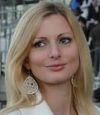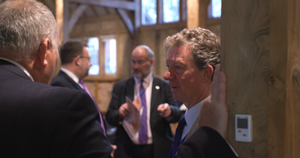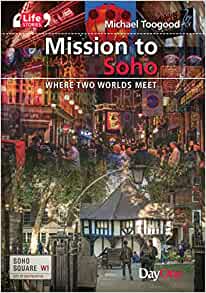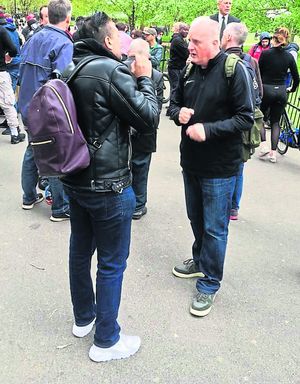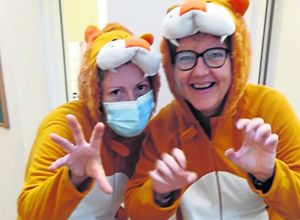The Big Interview
God’s economy
Former World Bank economist Dr Michael Schluter CBE, founder of the Jubilee Centre and the Relationships Foundation, talks to Evangelical Times about why getting relationships right can restore every aspect of society.
ET: What first interested you in social relational economics?
MS: After studying at Durham University, I did a PhD at Cornell University in the US and went to work for the World Bank, and the Food Policy Research Institute. This was after spending five years setting up small, rural industries in Kenya and helping in Tanzania.
I became interested in how Christians responded to the major ideologies – capitalism in Kenya, socialism in Tanzania and Marxism in Ethiopia (this was the mid-70s). I was fascinated to work out what was the Christian’s alternative model of society.
ET: How did you discover this?
MS: I was pointed to the Old Testament social framework and I realised that biblical law contained a model of organisation for creating the nation of Israel. I had to ask, ‘What was the big idea at the heart of this model?’ It wasn’t family, stewardship or even justice, although all these were important.
I found the answer in Jesus when he said ‘Love your God, and love your neighbour as yourself: on these hang all the law and the prophets’. This meant that a functional society hangs together on love.
ET: How did this affect your view of work?
MS: Well it was not the sort of thing I could take to a World Bank meeting, saying, ‘Hey, the answer to compulsory village-isation in Tanzania is love’. It’s not the language of global public policy. We do tend to see things through a financial lens – we think of developing nations as those without a lot of capital.
But a Christian thinks of progress in terms of a society with stronger, better, deeper relationships. Poverty is not just financial – some of the outcasts with whom Jesus stayed were wealthy tax collectors. We should not just think about financial poverty, but relational poverty.
Once you see the world through the lens of relationships instead of money, it can be a scary concept until you come to know God’s gracious relationship with us. God is not solitary: he is intimately relational, within the Trinity and with his world.
Also, relationships are how we define ourselves. Am I an economist or a chief executive, or the husband of my wife? Relationships are the key to understanding public and private life.
ET: So why is a right relationship at the core of a functional society?
MS: The question is how to see things through a relational lens. Let’s look at Singapore: it has the highest economic growth rate (GDP) anywhere in the world – 10 per cent; but one of the lowest birth rates per adult woman – 1.2 to 1.3. This means it’s losing a third of its population every 40 years, which is unsustainable.
How do you recover this? Through immigration? Yet immigrants simply do not make up the numbers – there are a whole set of social tensions and questions of relational cohesion and cultural identity that need to be considered. Society cannot be a melting-pot – it has to work on inter-relationships and creating a shared culture.
ET: How can we create such social relationships?
MS: We can give higher priority to marriage, children; to companies that develop healthy relationships with their customers, staff, providers and suppliers. A fundamental starting-point for public and private sector employers is that good relationships mean better-run companies, which means better services to customers and greater success.
Likewise, a country should focus on creating strong families, emphasising relationships and family bonds to help reduce the demand on public services as families look after each other and educate their children better together.
The trouble is, we try to measure integrity with a tick-box approach – countries want the results of Christianity without the doctrine and belief system of it.
ET: How did God use your faith while you were at the World Bank?
MS: Perhaps by an effective use of public money and by personal witness (I still have strong friendships now with some of my former colleagues). Perhaps my faith had a positive influence on tackling poverty in Tanzania, but mostly I believe that God was using that time to point out to me that what we can do with capital alone is very limited.
ET: What’s the best piece of advice that you have ever received?
MS: An old friend with whom I started the Cambridgepapers told me to look to the Bible for answers not as a ‘critique’ or academic excercise, but to seek out God’s Word as to how society should be organised.
God, being a relational God, gave us instructions on how to design a relational society. We see this clearly in Deuteronomy but also throughout Scripture. The principles that underlie the organisation of that society are still applicable now.
ET: What would you advise a young Christian about to start out in life?
MS: There are two ways to approach life. One is to plan what we will do and try to implement the plan – taking the most appropriate university course, looking for the right kind of job, etc.
There is a parallel track, however, which is to ‘go with the flow’. For example, suppose someone at your church says, ‘I run a printing business. Would you like to be an intern for six months?’
You might say no because you plan to become a lawyer. But what I have seen often in my life is that God has led me in unexpected directions.
As a consequence of doing what I did not ‘want’ to do because I felt God’s leading otherwise, I have been greatly blessed. Look to see where God may be leading you, even if it’s in the opposite direction to your first thoughts.
Simoney Girard

